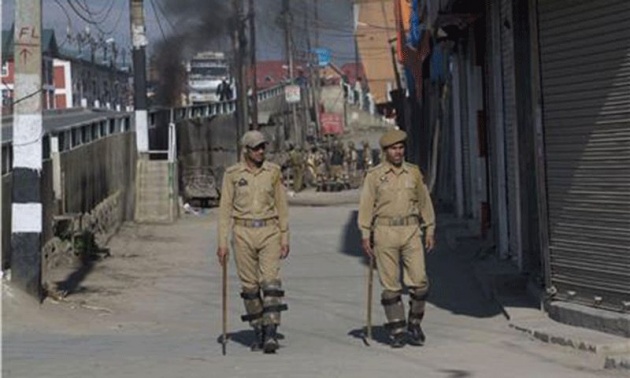
SRINAGAR: Hundreds of government forces with automatic weapons patrolled the streets of India-held Kashmir's main city to stop a rally by separatists to mark the anniversaries of the assassinations of two Kashmiri leaders.
The two, Mirwaiz Mohammed Farooq and Abdul Gani Lone, had supported Kashmir's right to vote on whether it should be independent or governed either by India or Pakistan, nuclear-armed nations that have fought two wars since 1947 over its control.
The Himalayan territory is currently split by a heavily militarised line of control between India and Pakistan.
No one has been convicted of the killings, but they were believed to have been assassinated by militants for softening their stance on the issue.
Shops, schools and businesses closed and public transport stayed off the roads Thursday in Srinagar in response to a general strike call by separatists.
Authorities ordered residents in the old quarters of Srinagar to stay indoors and put Mirwaiz Umar Farooq, who was scheduled to lead the rally later Thursday, and some other separatist leaders under house arrest.
Farooq was to have led a march to a cemetery where his father and hundreds of other Kashmiri separatists and civilians killed during the last 25 years are buried. His father, Mirwaiz Mohammed Farooq, Kashmir's chief cleric, was killed by assailants 25 years ago, and Abdul Gani Lone, another separatist leader, was gunned down in 2002 at a public rally observing Farooq's death anniversary.
Tight security measures have become common in Kashmir since 1989, when a violent separatist insurgency and ensuing crackdown by Indian forces left an estimated 68,000 people dead in the region.
While the armed rebellion has largely been suppressed, the region remains heavily militarised amid frequent street protests, with checkpoints along main roads, while the deployment of hundreds of thousands of troops and harsh emergency laws create more friction with the population.



